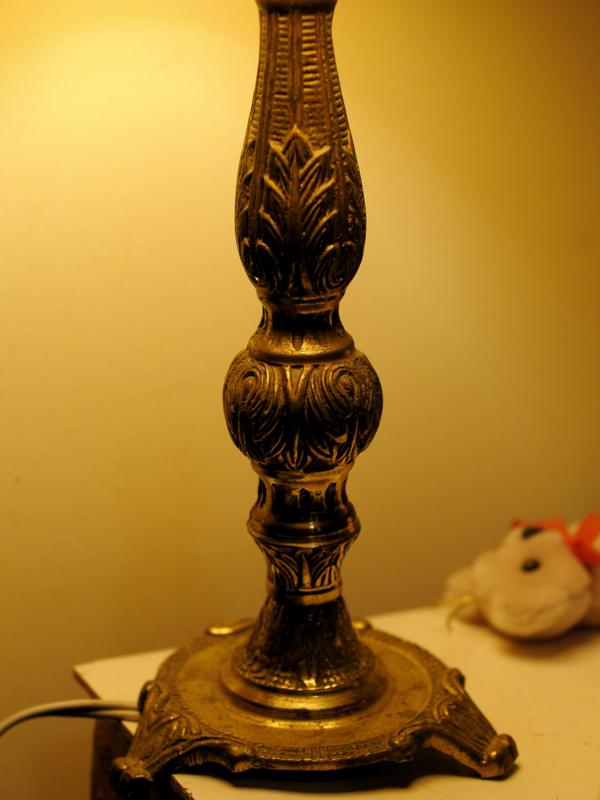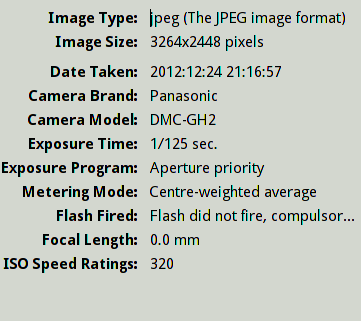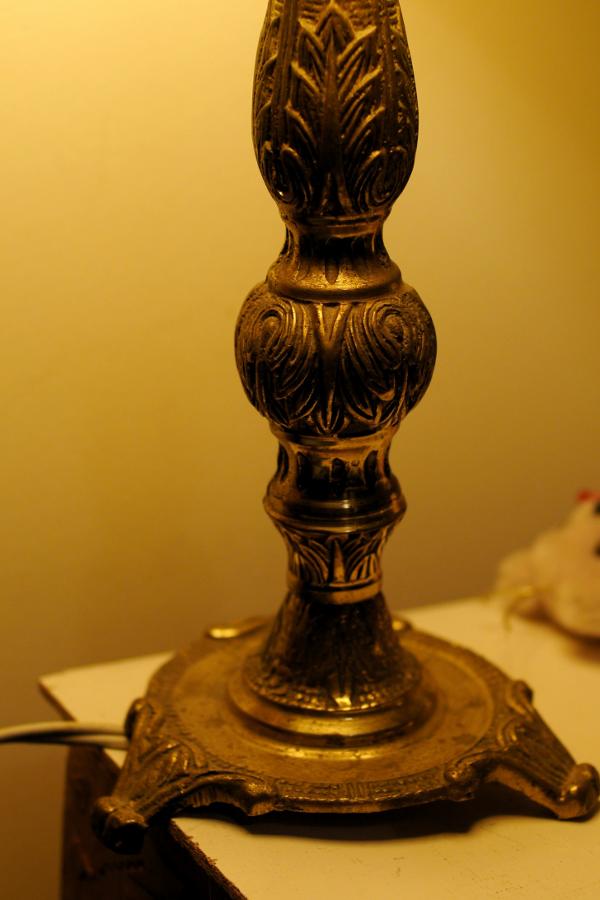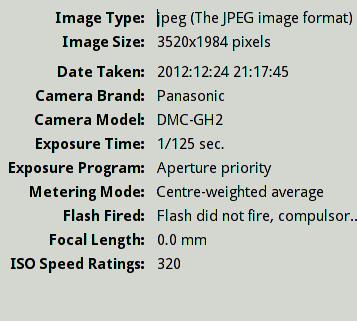
-
I sold my nokton very reluctantly to be honest. I went all the way to Japan to pick it up and I paid quite an exorbitant price for it: 95 000 yen. So I do have an affinity for it still do. But I had to sell it out of necessity to fund other lenses.
I agree the Nk 25 is amazing for macro. But I hv since bought a zeiss 60mm f2.8 makro that does 1:1 ratio so I hv no complaints. I guess we all go through different phases and learning curves. Nk was a necessary phase to help me sort out how I want to develop as a filmmaker and I am sure it will be the same for everyone else writing here :-)
-
Yep, enclosed spaces look like my biggest challenge. Sometimes (with other lenses) I have to walk away from a good subject and say, "There's just no shot here for me to take." I promise to try harder with my Voigtlander.
Sounds like you might go the extra mile for Art yourself: try a little harder with your car rig and get that "shot with one lens" street-cred :-)
-
For any of us who've forgotten, a lot of our film language arose out of the need to cut together shots from prime lenses - and quite often a single prime.
Such shots as a POV of an actor needed to be set up with the camera shooting from the same distance and angle as actor No.2; then likewise doing the reverse shots, 2-shots, close-ups of hands - everything with the same lens, corresponding distances and angles. The wide shots, establishing shots, MCUs etc, all waltz in and out as usual, changing angle and shot-size so as they'll cut-in - but always with the same trustworthy focal length.
This will subtly lead the viewer into a complicity of trust and triangulation with that focal-length; in short, the eerie sensation in the viewer of being able to judge distances to a point of tactile judgement; of sensing one could reach out and touch a character or navigate the room blindfold; of being there.
At that point, any tracking shots will be in the time of one of the characters - or of the viewer himself; perhaps dollying twice alongside two walking characters, often from two different distances just to keep them in frame. Or else you might see tracking around the outside of that cramped car trying to get a better view of the inside.
With a single lens faithfully guiding the way, the viewer's awareness of a camera being present can disappear completely.
There are many ways to make a single narrative film. This is just one discipline you might like to stick to for a while. I'd like, as I say, to try it with the Nokton 25.
-
I keep seeing videos on vimeo which have a certain shot which stands out as being special. The shot is taken at night, the view is wide, the subject is half way between close and background but floats; the image is sharp but perfectly smooth at the same time. In the comments people ask, what lens? The answer many times is Voight 25mm f0.95 followed by smiley face :)
When I have money again, I will resist buying it as long as I can.
-
You can achieve that kind of shot with any lens to be honest. It really boils down to you having an aesthetic eye and understanding the rules of photography. The lens may lend itself in a way that is unique to its character but in the hands of someone who doesn't understand even how light behaves you will get compromised quality.
One thing that no one has pointed out here about the nk25 is that it has terrible breathing. Try to rack focus with it: you get anything but cinematic
-
LoL. It's the first time I'm hearing it. Nokton 25mm has a lot less breathing than Lumix 20mm 1.7.
I guess you haven't tried Samyang primes yet. Although Samyang lenses have terrible lens breathing, images from the lenses look fantastic.
-
Sorry, I must have a faulty Nokton; unable to reproduce your breathing fault :-)
-
There are huge differences in breathing with the Samyangs, the 85mm for example is nice, the 35 pretty bad.
If you are under the impression the Nokton is breathing a lot, you may not have taken the long focus range into account. I find similar breathing to most other still lenses in it for the same amount of change.
-
-
No sarcasm here - trust me. Just genuine bafflement. I mean, I read all the reviews and tests, bought the 25 0.95, tested it myself. Don't see your problem. When I say
Sorry, I must have a faulty Nokton; unable to reproduce your breathing fault :-)
Take it that I'm genuinely happy and relieved to test my lens and find no extraneous breathing.
it's not the piece of glass that determines how good a filmmaker you are.
Well, you're steering a little close to the wind on this one. Choosing the right glass is part of every good filmmaker's job, isn't it?
I really don't know what you're trying to achieve here. Driving the price down? The Voigtlander is still $1200 at B&H: http://www.bhphotovideo.com/bnh/controller/home?O=NavBar&A=getItemDetail&Q=&sku=754598&is=REG&si=rev#costumerReview
I can sympathise with anybody's efforts to try to dissuade newcomers from unnecessarily buying an over-priced lens. I do think the Noktons fetch a premium price at the very least.
Hey, why don't you start your "25 reasons not to get a Nk25" thread? Really. We could use the space.
-
How does NK25 looks like in ETC mode? The fact that with a 0.95 aperture in low light, you can stay at lower ISOs than 640 to avoid noise using the ETC, should be quiet good. Many people say ETC mode is lossless. I haven't tried the NK25 personally, but my experience is even with a sharp lens like Pancake 20 the picture looks a tiny bit softer in ETC. Even the bokeh and the general look is not the same as using a comparable tele lens in the same focal length.
-
Just a simple test, @gameb
f/2.4 auto ISO. See below for actual ISO. Ignore frame sizes. Setting was for multiple-crop sizes (4 images per shot) and I chose those which the subject was the closest in size.
ETC:


Normal:



 lampETC.JPG600 x 800 - 47K
lampETC.JPG600 x 800 - 47K
 lampNormal.JPG600 x 900 - 54K
lampNormal.JPG600 x 900 - 54K
 LampETCProperties.png361 x 321 - 32K
LampETCProperties.png361 x 321 - 32K
 LampNormalProperties.png357 x 321 - 32K
LampNormalProperties.png357 x 321 - 32K -
Very nice. I never thought about it. 25mm * 2.6 = 65mm in low ISO.
-
@stonebat On the GH2 I think NK25 is 50mm x 2.6 (ETC) = 130 in low ISO. Thats why I asked how NK25 looks in ETC. The ETC looks actually quite nice (thanks for the tests @goanna). Means you can really use the crop pretty well with the NK2 and have a 130mm tele lens for nice close ups / portrait shots in low light situations.
-
Also if there's not enough room for long shot, the ETC can be useful. The fact that Nk25 has excellent center sharpness is nice in this case.
Then Nk17.5 and Nk25 can cover 45.5mm and 65mm.
-
One caveat though. ISO gotta stay below 400. Not really good alternative to low lighting situation.
-
@stonebat "Then Nk17.5 and Nk25 can cover 45.5mm and 65mm." I don't understand what you mean. NK17.5 is 35mm (on gh2) x 2.6 (ETC) = 91mm and not 45.5mm. Am I missing something?
-
Found this video, mostly shot in ETC mode on NK25 at F/0.95, the noise looks good, at ISO 160. With a slower lens you would have had to push up to higher ISO, hence much more noise in ETC mode.
-
17.5mm * 2.6 = 45.5mm. Yes you are right about the 35mm equivalent.
The ETC video looks good. I just did a test. Sharp enough. Deeper DOF. The same color rendition. It inherits the same chromatic aberration at f/0.95 though. Yes 1:1 macro possible :) I'd stop down to 4.0 or more for extreme close up.
-
I would love to see someones test with an ISO scale using ETC modus with the NK25 to understand up to which ISO level the footage is acceptable...?
-
Usually ETC has practical threshold about ISO 400. That's not enough for low lighting. I'm interested in using ETC in good lighting. f/0.95 + ETC portrait can blur the background. Or f/2.0 can give more sharpness.
-
Has anyone tested the 25mm 0.95 with the iscorama 36 (1.5x) to see if it covers the full sensor on the gh1/gh2? do we get vignetting ?have the isco36, thinking about getting the 25mm
-
Inspired by the debate between @kazuo, @goanna, @nomad and @stonebat two days ago, I did instantly few shots for this short video with my GH1 and Nokton 25mm f/0,95.
I tried to put into 2 minutes words you guys were using like macro, breathing, sharpness, bokeh etc.
In my opinion macro is great, breathing is negligible and definitely not an issue, lens tack sharp from f/1.4 onwards, but also sharp enough at f/0.95 and then... it's bokeh king by fully open iris: (look by 2:05-2:10)
p.s. sorry for bit shaky daylight scenes, hand held camera....it was done very quickly...
-
If someone considers that bad breathing, well, they are in the wrong area of business then! Are you kidding me? That's just insane. What are they comparing it too? An $80,000 cine lens?
-
Plus one more good thing. Step down a bit. Get a long exposure shot. You'd get very nice flare. It starts at f/2.8. f/11 looked best. It's one of the best lenses for the night photography on a tripod.

 20111214-P1000285.jpg1152 x 2048 - 1M
20111214-P1000285.jpg1152 x 2048 - 1M
Howdy, Stranger!
It looks like you're new here. If you want to get involved, click one of these buttons!
Categories
- Topics List23,992
- Blog5,725
- General and News1,354
- Hacks and Patches1,153
- ↳ Top Settings33
- ↳ Beginners256
- ↳ Archives402
- ↳ Hacks News and Development56
- Cameras2,367
- ↳ Panasonic995
- ↳ Canon118
- ↳ Sony156
- ↳ Nikon96
- ↳ Pentax and Samsung70
- ↳ Olympus and Fujifilm101
- ↳ Compacts and Camcorders300
- ↳ Smartphones for video97
- ↳ Pro Video Cameras191
- ↳ BlackMagic and other raw cameras116
- Skill1,960
- ↳ Business and distribution66
- ↳ Preparation, scripts and legal38
- ↳ Art149
- ↳ Import, Convert, Exporting291
- ↳ Editors191
- ↳ Effects and stunts115
- ↳ Color grading197
- ↳ Sound and Music280
- ↳ Lighting96
- ↳ Software and storage tips266
- Gear5,420
- ↳ Filters, Adapters, Matte boxes344
- ↳ Lenses1,582
- ↳ Follow focus and gears93
- ↳ Sound499
- ↳ Lighting gear314
- ↳ Camera movement230
- ↳ Gimbals and copters302
- ↳ Rigs and related stuff273
- ↳ Power solutions83
- ↳ Monitors and viewfinders340
- ↳ Tripods and fluid heads139
- ↳ Storage286
- ↳ Computers and studio gear560
- ↳ VR and 3D248
- Showcase1,859
- Marketplace2,834
- Offtopic1,320
Tags in Topic
- voigtlander 66
- voigtländer 66
- 25mm 64
- nokton 35
- f0.95 12











